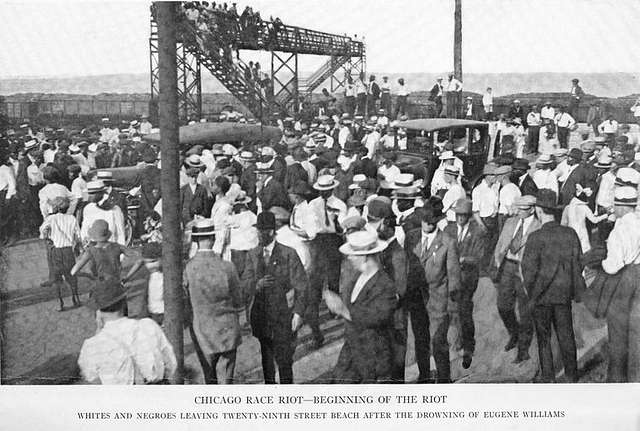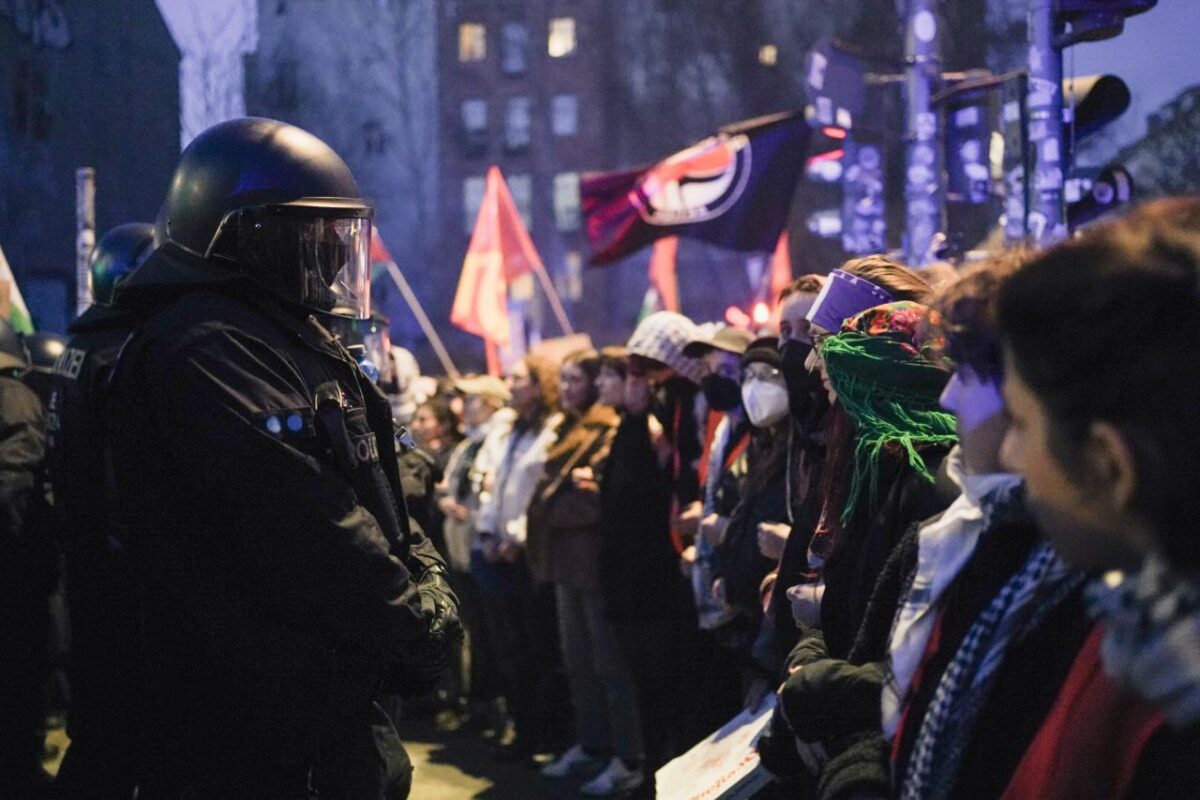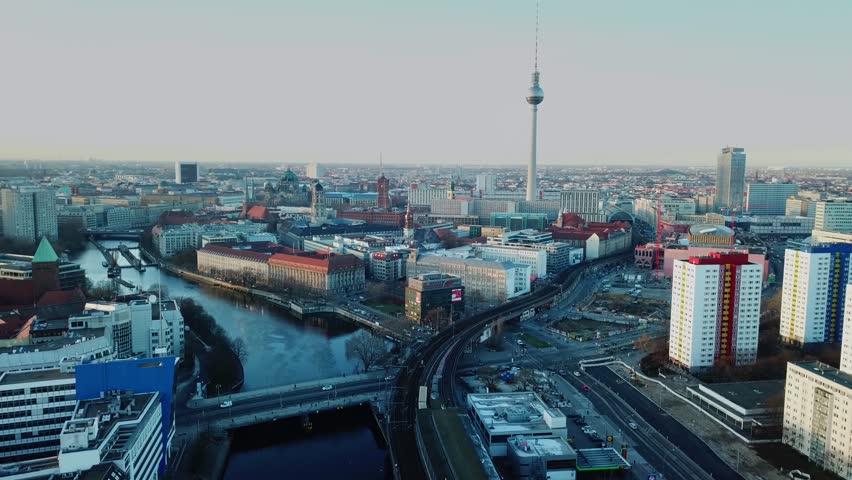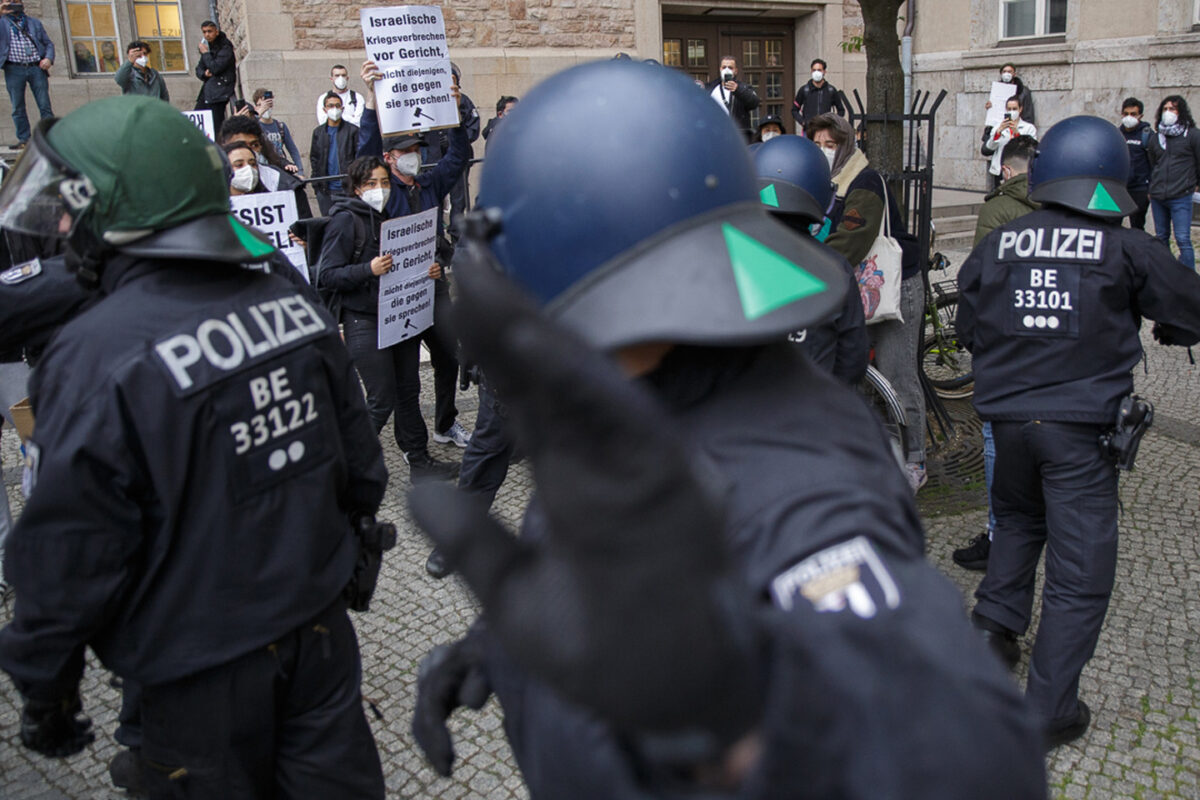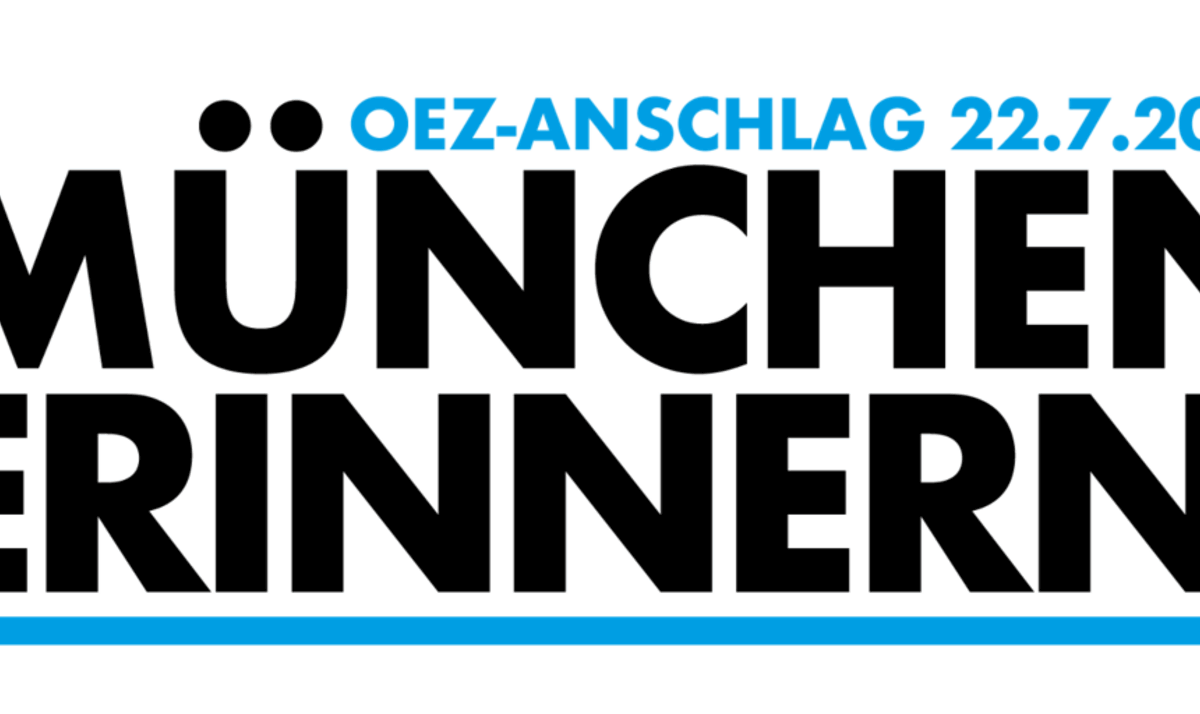For 21 months, the pro-Palestinian movement in Berlin has been subjected to violent and systematic attacks by the police acting on orders from the state. Demonstrations, rallies and events are brutally suppressed by an excessive number of riot police acting above the law.
This week, the paralegal actions of the police and the state have been made clear in two court verdicts, the first against the city of Berlin on behalf of Palestinian-British doctor Gassan Abu Sitta. This doctor, who worked in Gaza in October 2023, was banned from entering Germany to prevent him from participating in the Palestine Congress in April 2024, where he was to speak as a direct witness to the genocide. This congress, which was to last a weekend, was also raided by the police on the orders of Berlin Mayor Kay Wegner (CDU) after a single speech by Palestinian-American journalist Hebh Jamal, for whom the German state has been making life impossible ever since. This week, a Berlin court ruled that the ban on Dr Abu Sitta entering the country was illegal, more than a year after the event took place. It remains to be determined whether the dissolution of a congress that sought to discuss the genocide and Germany’s role in it was also illegal.
On Wednesday 16th July 2025, a Berlin court also ruled that the actions of the police were illegal. Under orders from German Chancellor Merz (CDU), the police yesterday forced the pro-Palestinian camp set up in front of the Reichstag and the German Chancellery building to move to another location where they would not disturb the chancellor. The protest camp appealed the decision in court and won. Today they will be back where the chancellor can hear them: “Israel is doing our dirty work”.
Likewise, using as an excuse the German Interior Ministry’s statement in November 2023 that the phrase From the River to the Sea, Palestine Will Be Free is a Hamas slogan, every time this slogan is heard the police charge fiercely against those who shout it and anyone in the vicinity, whom they then accuse of resisting authority, alongside exercising contempt and insulting them, which are quite serious crimes in authoritarian German society. They also attack peaceful demonstrators for chanting other slogans such as Zionists are fascists, they kill children and civilians or even Free Palestine. Thousands of people have been brutally arrested for alleged crimes related to these slogans and the situations that arise when the police enter demonstrations in hordes of 10 to 15 officers. The use of this tactic of criminalising the pro-Palestinian movement has resulted in some 9,000 cases related to solidarity with Palestine being investigated in Berlin alone, many of which will end up in court. The police continue to carry out these arrests despite the fact that in multiple cases the courts have found that both From the River to the Sea, Palestine Will Be Free and Zionists are fascists, they kill children and civilians are not crimes of incitement to hatred.
One of the 4 latest wins in court regarding From the River to the Sea, Palestine Will Be Free was very telling. The expert on the Middle East from criminal police was yet again invited to give her testimony of the history and use of the slogan. She could find seven examples since Hamas was founded that could be attributed to them, including the geographical description of where Palestine is in their foundational charter, and some minor examples such as an alleged election poster that had spelling mistakes. The rest of the examples brought forward, including the very first use of the slogan, were either made by zionists, or used worldwide for decades by millions of people as a symbol of Palestine solidarity. Pro-Palestinians have been using it to fight for the rights of all people from the river Jordan to the Mediterranean Sea of a secular state. The sentence of the judge in this case was very stark in favour of stopping the absurd criminalisation of a political movement by the German state apparatus, and offered a stark warning to the prosecutor’s office to stop this criminalisation trend that backs up the criminal court system.
The excessive actions of the police, their tactics of criminalisation and lies are culminating in their actions during and after the rally for the 77th anniversary of the Nakba in Berlin. After doing everything possible to prevent the demonstrators from marching, they were surrounded by hundreds of riot police, who charged in groups of 15, attacking the demonstrators, leaving a trail of seriously injured people and making 88 arrests at a rally of about 1,000 people. In a clear example of reversing the victim and the perpetrator, a police officer who was injured by his own brutality in beating protesters and by a riot they themselves created has been portrayed as a victim of rabid protesters. The German press and politicians have been calling for weeks for greater restrictions on pro-Palestinian demonstrations, and the state attorney general’s office is investigating the case. A video of the event analysed by Forensis clearly shows that it was the actions of this police officer and his colleagues that resulted in his injuries. However, today the police, on the orders of the state prosecutor’s office, carried out raids on the homes of five activists and confiscated their electronic devices. They ignored all the evidence showing that it was the demonstrators who were brutalised.
The fact is that if the Berlin police believe they are above the law, it is because they are. To date, none of the beatings that have left hundreds of pro-Palestinian protesters in hospital have been punished in the slightest, while the protesters who were attacked face fines and even prison sentences for “resisting” the police. The lies told by members of the police in court, where videos prove that their version is far from reality, also go unpunished. The courts simply ignore them and sometimes believe them despite what the videos and other witnesses show.
This system of paralegal criminalisation is useful for a government and state complicit in the genocide in Palestine, which has demonstrated on more than one occasion that its “Staatsräson” is above human rights and basic morality.
Interviewed by theleftberln.com, lawyer Benjamin Düsberg said: “regardless of the fact that more and more courts are beginning to understand that these slogans are legal, Berlin prosecutor and police are still arresting and criminalizing people for it. They do not give up and will probably try to get a new ‘expert opinion’ in support of their claims. So, we need a landmark decision of higher courts to stop the prosecutor. But I am sure we will get it because the truth is on our side.”
Benjamin continued: “In Germany police officers almost never are indicted or charged for their violent acts. “The legal system in Germany acts like a ‘cover up- machine’ for the institution of the police,” Biplap Basu, the great human rights advocate once said. It is true – there is basically immunity for police violence in Germany.”
